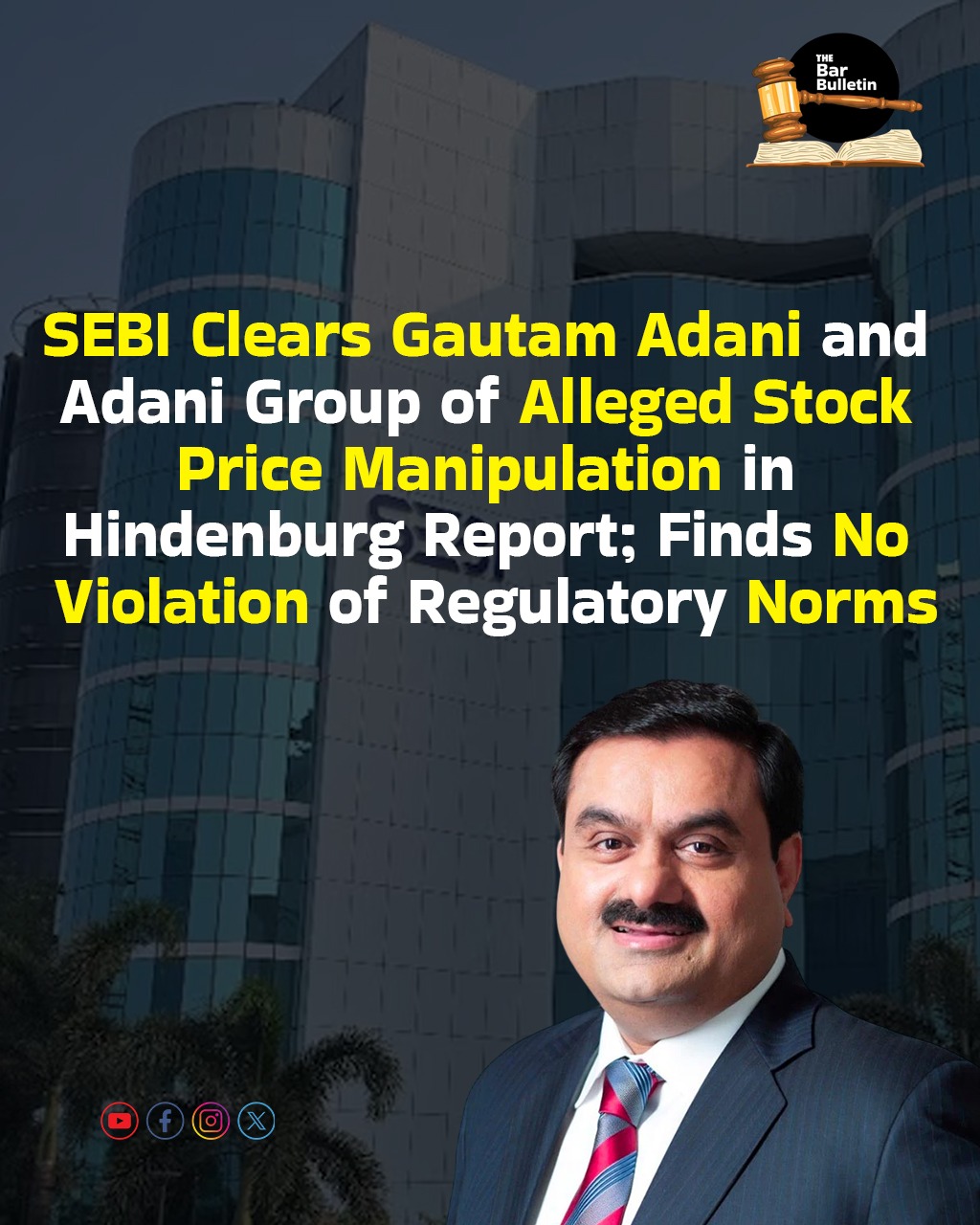SEBI dismissed all allegations of stock price manipulation, fraudulent transactions, and related party transaction violations against Gautam Adani and several Adani Group companies, dropping all further proceedings.
The inquiry and adjudication were initiated by SEBI pursuant to allegations made by Hindenburg Research in January 2023 accusing the Adani Group of stock price manipulation through related party transactions and non-disclosure of key corporate actions. Show-cause notices were issued for violations of SEBI (Listing Obligations and Disclosure Requirements) Regulations, 2015 (LODR Regulations) and other securities laws relating to transparency and investor protection.
Hindenburg Research alleged that Adani Group firms artificially inflated share prices by engaging in unfair trade practices, manipulating financial statements, and failing to disclose related party transactions in compliance with SEBI regulations. Investigations focused on whether transactions qualified as related party dealings, adequacy of disclosures, and whether any fraudulent siphoning or diversion of funds occurred.
The Supreme Court had earlier declined petitions seeking to transfer the investigation from SEBI to independent agencies like the CBI or an SIT, affirming SEBI’s competence and impartiality in investigating and adjudicating the probe.[1] The Court had held that such a transfer is warranted only if there is evidence of blatant, wilful, and deliberate inaction or partiality by SEBI; mere reliance on unsubstantiated media reports or third-party claims cannot undermine SEBI’s statutory probe.
The two main issues framed for adjudication were: first, whether the loan transactions in question qualify as related party transactions under the LODR Regulations; and second, whether there was a scheme or artifice to conceal related party transactions that should have been disclosed under LODR, thereby evading regulatory scrutiny.
SEBI found that the impugned transactions were between the listed companies and unrelated parties, hence they did not qualify as “related party transactions” under LODR regulations as they existed at the material time. The 2021 amendment to LODR expanding the definition of related party transactions was held to be substantive legislation and could not be applied retrospectively.
SEBI did not find any credible evidence to substantiate claims of misappropriation of funds; rather, monies involved were returned with interest prior to investigation. The order states that the show-cause notices failed to allege, let alone prove, any manipulative, fraudulent, or unfair trade practice as defined under securities laws. SEBI, acting in its regulatory and investigatory capacity, insisted on evidence-based enforcement rather than speculative or media-driven claims.
The SEBI probe did not find any unlawful diversion or siphoning of funds in order to warrant regulatory action. It clarified that the impugned transactions could not be classified as manipulative or fraudulent or unfair trade practice within SEBI’s regulatory framework. The order emphasizes the importance of rule of law and evidentiary basis in enforcement.
In conclusion, SEBI’s comprehensive adjudication cleared the Adani Group and its promoters against high-profile allegations of stock price manipulation and disclosure lapses highlighted in the Hindenburg Research report. The decision effectively closes the matter by issuing directions to drop all ongoing proceedings, including show-cause notices against Gautam Adani, Rajesh Adani, Adani Power Ltd, Adani Ports & SEZ Ltd, Adani Enterprises Ltd, and other linked entities.
[1] Vishal Tiwari vs Union of India, 2024 SCC Online SC 15

